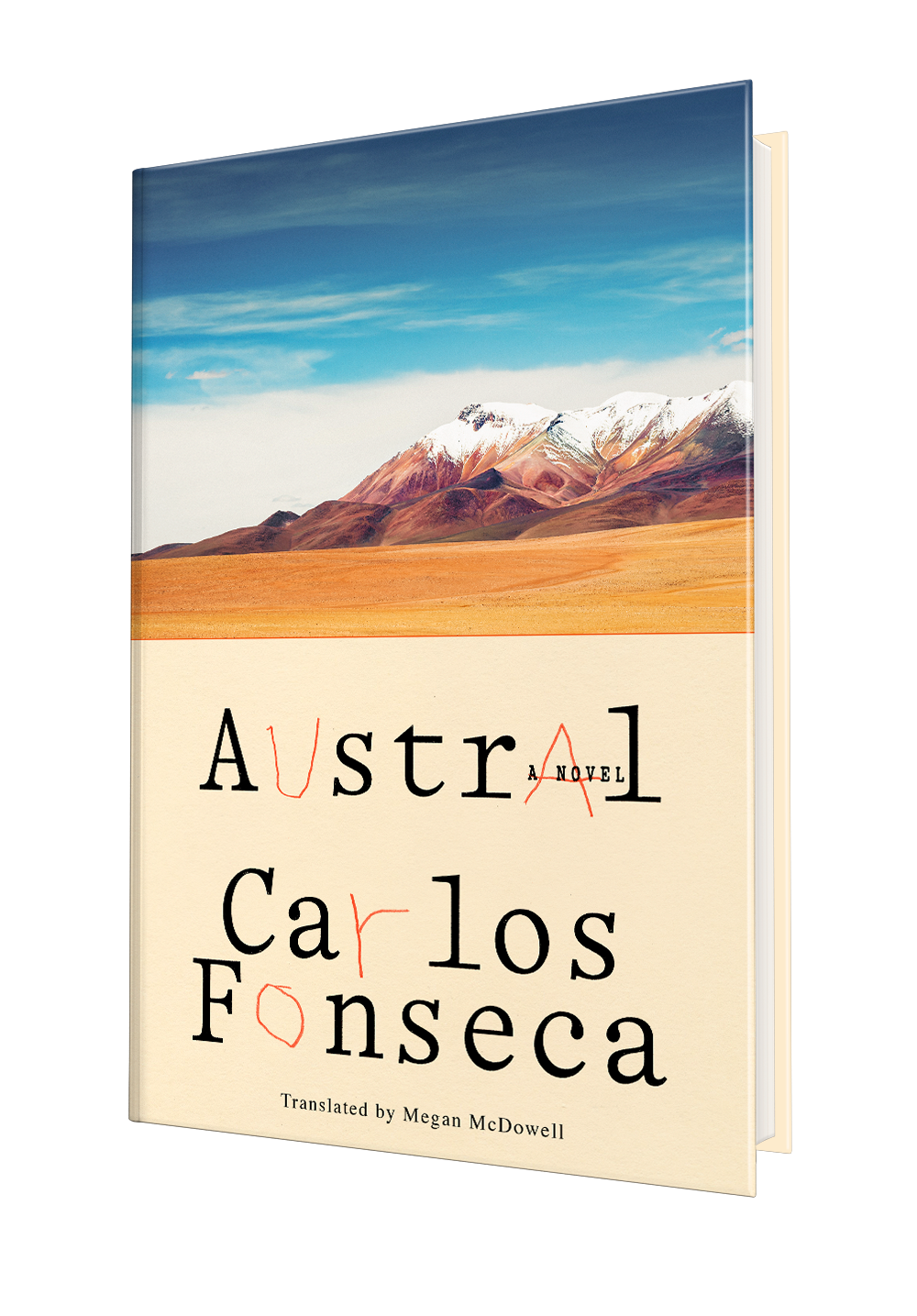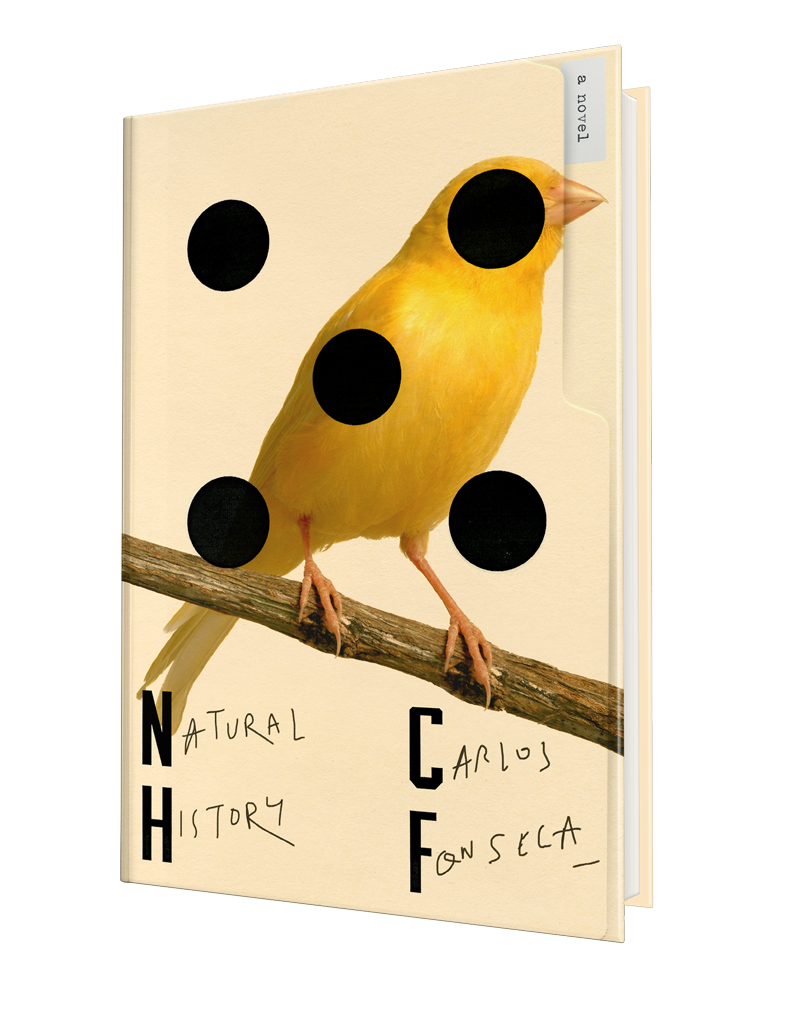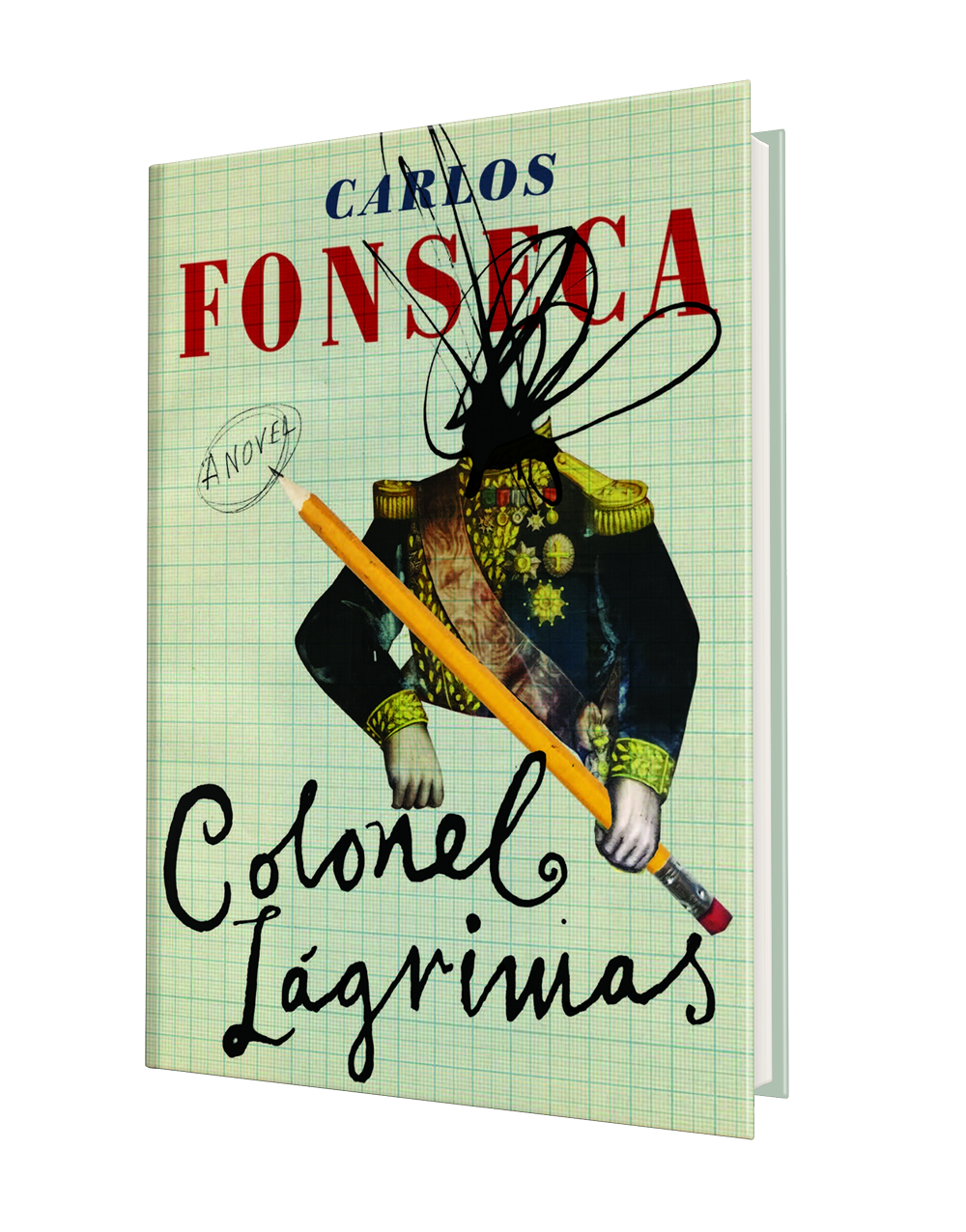A dazzling novel about the traces we leave, the traces we erase and the traces we seek to rebuild.
In this innovative novel three losses and three quests are pursued. English writer Aliza Abravanel tries, in a battle with aphasia, to finish her book. A last indigenous speaker is confronted with the fading of his culture and language while an anthropologist struggles to prevent it. And through the construction of an esoteric theatre of memory, a survivor of the Guatemalan genocide of the 1970s and ’80s seeks to recover the memories lost after the traumas of war. And behind these three threads lies the narrator’s own story: Julio, a disillusioned university professor, must try to understand and complete his friend Aliza’s novel, and come to terms with a past he shared with her but has blanked for thirty years.
From the Guatemalan wilderness to the high Peruvian Amazon, passing through Nueva Germania, the anti-Semitic commune founded in Paraguay by Nietzsche’s sister, Austral takes us on a long journey south, following a trail of ecological and cultural destruction to excavate contemporary xenophobia.
“A reflection on identity, rootlessness and violence, written in admirable prose—Fonseca’s most ambitious, most complex and most accomplished novel to date.”
—Javier Cercas, author of Even the Darkest Night
“A beautifully knotted novel which unfolds with every traced layer of its deeply affecting narrative alongside a meditation on memory, mystery and vanishing. Austral is a novel of profound questions.”
—Guy Gunaratne, author of Mister, Mister
“A tender and thoughtful exploration of the painful irony of being alive and our attempts to make sense of the past as well as the present.”
—Katharina Volckmer, author of The Appointment
“Carlos Fonseca consolidates with Austral a profoundly literary project: a search for the traces left by that journey without return towards those we once were. He hands us, in turn, a beautiful account, free and joyful, of his unexpected findings.”
—Alia Trabucco Zerán, author of The Remainder
Natural History
From Carlos Fonseca comes a dazzling, kaleidoscopic epic of art, politics, and hidden realities
Just before the dawn of the new millennium, a curator at a New Jersey museum of natural history receives an unusual invitation from a celebrated fashion designer. She shares the curator’s fascination with the hidden forms of the animal kingdom—with camouflage and subterfuge—and she proposes that they collaborate on an exhibition, the form of which itself remains largely obscure, even as they enter into a strange relationship marked by evasion and elision.
Seven years later, after the death of the designer, the curator recovers the archive of their never-completed project. During a long night of insomnia, he finds within the archive a series of clues to the true story of the designer’s family, a mind-bending puzzle that winds from Haifa, Israel, to bohemian 1970s New York to the Latin American jungle. On the way, he discovers a cast of characters whose own fixations interrogate the unstable frontiers between art, science, politics, and religion: an aging photographer, living nearly alone in an abandoned mining town where subterranean fires rage without end, who creates models of ruined cities; a former model turned conceptual artist—and a defendant in a trial over the very nature and purpose of art; a young indigenous boy who has received a vision of the end of the world. Reality is a curtain, as the curator realizes, and to draw it back is to reveal the theater of obsession.
Natural History is the portrait of a world trapped between faith and irony, between tragedy and farce. A defiantly contemporary and impressively ambitious novel in the tradition of Italo Calvino and Ricardo Piglia, it confirms Carlos Fonseca as one of the most daring writers of his generation.
“Everything is contingent in Fonseca’s story, and nothing is quite to be trusted . . . [Natural History] is an elegant meditation on art, inconstancy, and hiding . . . A treat for fans of Cortázar, Bolaño, and other adepts of the literary enigma.”
—Kirkus Reviews (starred review)
“Fonseca’s inventive, complex tale reads like a literary onion, constantly revealing new narratives and layers of meaning . . . The various characters’ perspectives blur the line between memory and fantasy, and their charm will keep readers along for the very intricate ride. Fonseca’s innovative puzzle box of a novel packs a powerful punch.”
—Publishers Weekly (starred review)
“Rising star Fonseca’s new novel [is] a literary tour de force, impressively translated by Megan McDowell. Fonseca’s challenging and transcendent novel offers a prescient message about media fabrications and the unreliability of history.”
—Booklist
“For readers interested in climate change and the natural world―but who prefer books a little less on the nose―Natural History offers a layered and at times wonderfully beguiling story about art, history, and mystery that hops generations. Animal lovers will delight at the protagonist’s obsession with creaturely furtiveness and wild animals’ natural ability to self-camouflage. And fans of ambitious structure-benders like Italo Calvino will appreciate the novel’s planet-and decade-spanning mystery that connects 1970s New York to the jungles of Latin America. As the protagonist, a curator at a natural history museum, pieces the clues together, he discovers links between art, science, and religion that change forever how he sees the world.”
―Amy Brady, Lit Hub
“Fiercely intelligent and wildly imaginative—a fever dream of a novel, rich and strange.”
—Carys Davies, author of West
“Like a certain map that appears in its pages, a map in which two versions of a city are superimposed on one another, Natural History reveals a strange reality that lives in the shadows of our own. Carlos Fonseca has written a wonderful, wildly ambitious book that builds a labyrinth from art, politics, religion, love, and obsession.”
—Chris Power, author of Mothers
“Natural History is a deeply thoughtful, bold, and kaleidoscopic novel, one that, with great audacity and even greater beauty, invites reflection about the weight of legacies and about the masks that make up what we call identity.”
—Alia Trabucco Zerán, author of The Remainder
“Carlos Fonseca is one of the most gifted and imaginative young novelists in Latin America today.”
—Chloe Aridjis, author of Sea Monsters
“With Natural History, Carlos Fonseca, a writer of archives, masks, and ruins—that is, a writer with the capacity to create new ways of thinking, an ingenious and obstinate explorer of the abyss—has cemented himself as one of my favorites.”
—Enrique Vila-Matas, author of the International Booker Prize-longlisted Mac and His Problem
“[A] wonderfully enigmatic novel . . . [Natural History] reaches across continents and decades, touching on political movements and popular culture . . . With lush prose that owes a debt to translator Megan McDowell, Fonseca weaves the fictional threads of Giovanna’s life into a fabric of real history, grounding his story in events ranging from Sherman’s March to the Sea to the legal battle between sculptor Constantin Brâncuși and the American government that redefined ‘art’ at the turn of the 20th century . . . No detail in this book is superfluous.”
—Joan Gaylord, Christian Science Monitor
“Natural History, ably translated from the Spanish by Megan McDowell, appropriates from the great metaphysicians of postmodern fiction. Its plotting and Delphic aura suggest the paranoiac glitter of Don DeLillo, the cosmopolitan dread of Roberto Bolaño and the imaginative elasticity of Ricardo Piglia.”
—Dustin Illingworth, The New York Times Book Review
“In a calm and lyrical tone, Carlos Fonseca’s works ambitiously seek to incorporate everything. They flirt with unified theories and take joy in connecting ideas in unexpected ways, his protagonists often losing themselves in beguiling mental labyrinths of their own making . . . It is this very bravery that makes it such a pleasure to read his intellectual thrillers about art, nature, and the quest to remake oneself.”
—Jessica Sequeira, Los Angeles Review of Books
“Moving . . . An intellectual puzzle that reminds us that it is also possible to be passionate about ideas . . . Guided by its obsessive characters and their fixations, the book elegantly takes the reader for a tour of Latin America’s labyrinthine contemporary history . . . Deftly translated by Megan McDowell, the mastery, grace, and intelligence of Fonseca’s prose come forth, halfway between the baroque rhythms of Faulkner and the steady pulse of Borges.”
—Gunter Silva, Full Stop
“Fonseca is arguably one of the leading Latin American stylists of his generation, and Natural History fundamentally testifies to his belief in writing. At a time of extraordinary accumulation of information, one can think of Natural History as an attempt to redeem the task of writing by placing the creative moment at the center of its polyphony. Is there any greater purpose for literature?”
—Diego Azurdia, Music & Literature
“[Natural History] often reminds one of Roberto Bolaño’s masterpiece 2666 . . . A conceptual detective fiction in the tradition of Ricardo Piglia or Don DeLillo . . . [Fonseca maintains] a rhythm that keeps us in suspense for the entire length of this singular narrative . . . Within this complex game of Russian dolls that Fonseca has constructed, nothing remains more fascinating and enthralling than the experience of reading it.”
—Enrique D. Zattara, 3:AM Magazine
“Natural History is more than a story I wish I had written. It is a story I wish I had lived. A fantastic and even phantasmal tale of a quest, a work of art masquerading as a scam, and a contemplation on human lives, the novel is an incisive discussion about the nature and meaning of truth. It is also about the 1960s and their aftermath, the literal and figurative existence of fire, and love faded and otherwise. Reminiscent of Roberto Bolaño’s novels in tone and approach, Natural History is a dream that is real and reality that is a dream.”
—Ron Jacobs, CounterPunch
“An inspired narrative about family, creativity, and self-destruction. Deftly translated by Megan McDowell, this is an intellectually fertile book, one that features an engrossing plot and several perceptive character studies . . . Braided together, these storylines are rich and thought-provoking; in each, Fonseca’s characters are at war with conformity, engaged in a kind of self-abnegation that looks alluring from afar but, when considered up close, is messy and heartbreaking . . . A well-written, intelligent, and frequently gripping novel, an insightful group portrait of a family that finds fascinating yet tragic ways to test the limits of creativity, faith, and the law.”
—Kevin Canfield, World Literature Today
“After just two novels Carlos Fonseca has already established himself as one of the most interesting and ambitious young writers working in Spanish today. His second novel Natural History is a tour de force, an expansive investigation of mimesis, tedium, and the line between art and reality, propelled by an intriguing, polyphonic plot structure.”
—Juan Toledo, Lit Hub
“Fonseca’s inventive and distinctive style is a delight that serves up narrative twists at every turn of the page.”
—The Daily Beast (“The Best Summer Reads of 2020”)
Colonel Lágrimas
Holed away in a cabin in the Pyrenees, the world-famous and enigmatic mathematician Alexander Grothendieck is working furiously on a final project. But what exactly is this monumental, mysterious undertaking? Why did this man, one of the greatest geniuses of the century, a politically militant man himself, suddenly decide to abandon politics and society altogether? As the reader pursues the answer to these questions, two layered narratives emerge. One is a series of unforgettable characters that have transfixed the mathematician’s imagination: Chana Abramov, a woman obsessed with painting the same Mexican volcano a thousand times, Vladimir Vostokov, an anarchist in battle with technological modernity, and Maximiliano Cienfuegos, a simple man who will nonetheless become the symbol for the Colonel’s as well as Europe’s restless political conscience. The other is the protagonist’s life story: a picaresque journey that traverses the 20th century: from the Russia of the October Revolution to the Mexico of the anarchic 1920s, from the Spanish Civil War to Vietnam, all the way back to France and from there to the Caribbean islands. Out of this Borgesian web emerges a tragicomic allegory for the political arch of the past century, one that began addicted to political action and ended up hooked on big data.
Loosely based on the fascinating life story of the eccentric mathematician Alexander Grothendieck, Colonel Lágrimas is a world-spanning tour de force of history, politics, literature, mathematics, and philosophy that wears its learning lightly, forming an appealingly human story of the forces that have created the modern world.
“Beware, reader, in these pages you will experience vertigo, anxiety and joy. You will become a ghostly presence in a Borgesian world, a camera obscura, where mathematics is a secret weapon, and memory the object of an archaeological pursuit. Loosely inspired by the eventful life of the French mathematician Alexander Grothendieck, Fonseca has created a gorgeous opera prima.”
—Valerie Miles, The New York Times Book Review
“So much of the writing in Carlos Fonseca Suárez’s Colonel Lágrimas was just gorgeous, and Megan McDowell’s translation from the original Spanish managed to keep the beautiful complexity of the language intact.”
—Meg Nola, Foreword Reviews, 2016 Reviewer’s Choice
“An intriguing and unforgettable verbal kaleidoscope.”
—Ricardo Piglia, author of Target in the Night and Artificial Respiration
“A true feat of literary ventriloquism and cinematic control, tinged with a humor and melancholy inspired by the human condition. Whether we think of it as a game of masks or as a Cubist portrait, Fonseca’s novel reads like an Oulipian puzzle where historical memory can play hide-and-seek . . . The novel has a panoramic and worldly vision. There’s something vast, all-embracing, and decidedly humanist about the project.”
—Chloe Aridjis, BOMB Magazine
“In this pretty puzzle, Fonseca tests the limits of fiction . . . Fonseca’s narration mimics the meandering matrix of memory or an esoteric police procedural by Jorge Luis Borges . . . For lovers of literary and Latin American postmodern fiction.”
—Sara Martinez, Booklist
“Reading [Fonseca’s] work, one feels the presence of voices as disparate as those of W.G. Sebald, Alexander von Humboldt, Simón Bolívar and Roberto Bolaño, among others. Fonseca is, without a doubt, a cosmopolitan offspring of cultural globalization as well as an attentive inheritor of both literary and cultural history . . . Through an attentive and rigorous attention to detail, Fonseca is able to construct a collage where the mathematician’s life finds its ultimate meaning amidst a series of historical, metaphysical and poetic fragments that end up giving shape to a fascinating literary artifact that shines like an eclectic mosaic . . . Colonel Lágrimas is a novel that showcases the craft of writing. Throughout its pages, it becomes apparent that its writerly resources are managed with a certain fluency and experimentation but, at the same time, with notable confidence.”
—Tomás Peters, Electric Literature
“Though the novel nods mostly to García Márquez, Fonseca plays with the possibilities of hypertext raised by Julio Cortázar, and there are hints of Bolaño and perhaps even of younger contemporary Daniel Galera . . . a lively, smart study of a decidedly offbeat character.”
—Kirkus Reviews
“In the process of this game of coding and decoding, Fonseca deploys a torrent of vital and poetic ideas within a singular yet fascinating literary artifact . . . [Colonel Lágrimas makes me think of] Georges Perec, Italo Calvino, W.G. Sebald, Borges, Juan Rulfo.”
—Gunter Silva, Words Without Borders
“Colonel Lágrimas is a clever book, slightly claustrophobic in its setting, but spanning the globe through its focus on the old man’s memories . . . It’s beautifully written, with more good work here by the excellent McDowell . . . [The tedium of the Colonel’s life,] in Fonseca’s hands, far from being something to grieve, becomes a celebration of a life less ordinary.”
—Tony Malone, Tony’s Reading List


